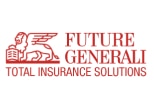The Most Common Terms Associated With Retirement Plans
Table of Contents
Retirement plans are the best way to save up towards a financially stable future after your retirement. The period after your retirement requires careful planning as you are no longer employed with a regular income. Lack of proper savings can put you in a tough spot, financially. Therefore, you must plan and save up from an early age.
The more you know about your retirement plan, the more you will be able to make use of it. Read on to find few of the most common terms on retirement plans.
Most Common Terms of Retirement Plans
Take a look at the following most common terms associated with retirement plans. These will help you understand more about the plan.
-
Annuity
This can be defined as the amount of money that an insurance company regularly pays out to the policyholder over a specific period.
-
Vesting Age
The vesting age is the age when you start receiving your pension. In general, it is after 60 years.
-
Premium
The amount that is paid regularly to contribute and invest in the insurance plan, by the policyholder. For retirement plans, this contribution is often automatically deducted from the monthly salary of the employee.
-
Accumulation Period
The accumulation period for a retirement plan is the period during which you contribute and save in your retirement plan. It is the time during which you can invest your salary in a retirement plan.
-
Riders
In an insurance-based retirement plan, you can add riders to the basic retirement plan. Beside life cover that is provided by the insurance plan, riders make the retirement plan more comprehensive and robust. Riders cover several situations such as accidents, disabilities, and more.
-
Fund Value
The amount of money that has been accumulated in your retirement plan at the end of the accumulation period.
-
Maturity Amount
This is the amount of money that is paid out to the policyholder in case they live beyond the policy term. It can be paid out in lump sum or in the form of staggered, regular payments as per the policyholders’ wishes.
-
Death Benefit
The death benefit from a retirement plan is paid out to the nominee of the policyholder in case of their untimely demise. It can be paid out in lump sum or on a staggered basis. This is applicable only when the policyholder dies within the policy term.
-
Benefit Pension Plans
Benefit pension plans are provided by employers and employing organizations. It is based on the salary as well as the number of years the employee has been working for the organization.
-
Loyalty Benefits
Loyalty benefits or rewards are provided by the organization sanctioning your retirement plan, on maintaining the retirement plan steadily over a long period. This is subject to the fact that you are regular and diligent with your premium payment.
Also read
The Different Types of Retirement Plans
Ways To Plan A Stress-Free Early Retirement
Disclaimer: This article is issued in the general public interest and meant for general information purposes only. Readers are advised not to rely on the contents of the article as conclusive in nature and should research further or consult an expert in this regard.



























































